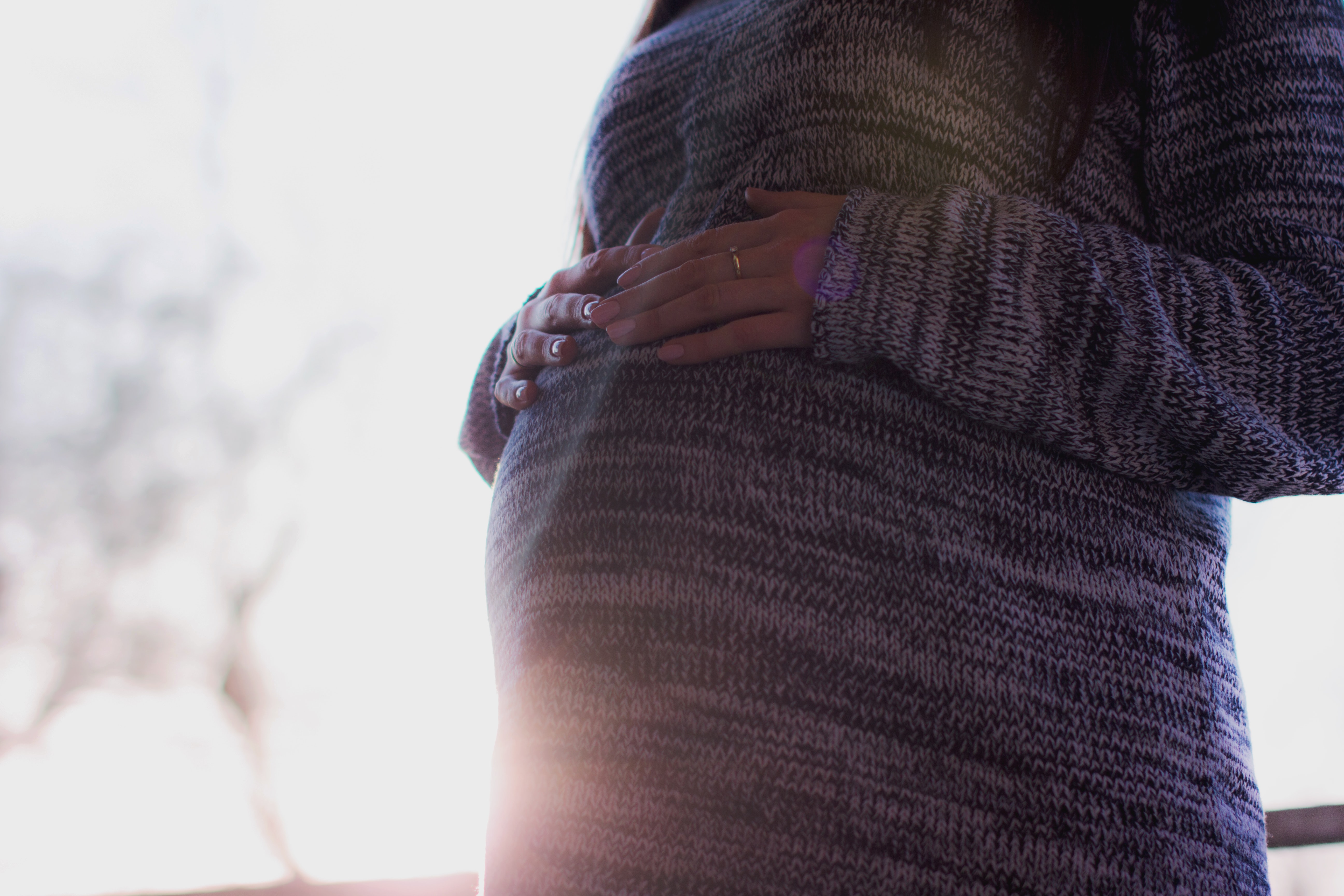Pregnancy, childbirth, and placing your child for adoption take a huge toll on a birth mother both physically and emotionally. If you’re a birth mother who has recently given birth and placed your baby for adoption, you’ll need to give yourself time to recover. How much time you’ll need to heal will depend on you; everyone moves through the healing process at different rates. Use these tips to help yourself heal your body and your heart after pregnancy and placement.
Recovering from Pregnancy
Your body worked hard to keep your baby healthy and safe for months while your baby grew inside you. Whether you had an easy labor or a complicated one, a vaginal birth or cesarean (c-section), whether you labored for a few hours or a few days, your body went through a trauma it must recover from.
Your body will change in several ways after giving birth. You will experience physical and emotional symptoms after giving birth. The duration for which you experience these symptoms varies, but in general, you can expect to start feeling more like your normal self approximately six weeks after childbirth.
The following symptoms are common to experience in the days and weeks after you give birth:
- Perineum Soreness: The perineum is the place between the rectum and vagina. During labor and vaginal birth, your perineum stretches and it may tear. Other times, your doctor may have to make an incision in this area to widen the area for childbirth. Even if neither of these things happened during your vaginal birth, your perineum may still be sore and swollen after giving birth.
You may experience perineum soreness for several weeks following vaginal childbirth. There are several things you can do during this period of time to help relieve discomfort. Sitting on a pillow or donut-shaped cushion, soaking in a warm bath, and putting a cold pack on your perineum can help ease discomfort. Doing Kegal exercises may also help. To do Kegal exercises, squeeze the muscles you use to stop urinating and hold for 10 seconds before releasing. Repeat the exercise 10 times. Try to do Kegal exercises three times each day.
Taking an over-the-counter pain reliever may also help alleviate pain. You can ask your doctor for a numbing cream or spray to use on your perineum as well. - Vaginal Discharge: After giving birth, your body will get rid of the blood and tissue that was in your uterus. For the first few days, the discharge will be heavy and bright red in color. Over time, the discharge will become lighter in consistency and color. It’s important that you contact your doctor if you experience heavy vaginal bleeding, as in soaking a sanitary napkin in less than one hour, especially if the heavy bleeding is accompanied by fever, tenderness, or pelvic pain.
- Urinary Incontinence: Pregnancy, labor, and vaginal delivery stretch out your pelvic floor muscles. Your pelvic floor muscles support your bladder, uterus, and rectum. After giving birth, you may leak drops of urine when you laugh, cough, or sneeze. This usually gets better within a matter of weeks, but the problem can be long-term. Kegal exercises can help tone your pelvic floor muscles and help you control your urine.
- Afterbirth Pains: After you give birth, you will experience abdominal cramps as your uterus shrinks down to its normal size. These cramps are comparable to menstrual cramping and should subside within a few days after you give birth. You can ask your doctor what over-the-counter pain reliever you can use to relieve the cramps.
- Breast Tenderness: Within a few days of giving birth, your breasts may become full, firm, and tender. Since you will not be breastfeeding, wear a supportive bra, such as a sports bra, and ask your doctor about an over-the-counter pain reliever you can take to relieve discomfort. Don’t manually express your breasts or use a breast pump – both things will cause your breasts to produce more milk.
- Hemorrhoids: Hemorrhoids are common both during and after pregnancy. They are painful and swollen veins in and around your anus. There are several things you can do to relieve hemorrhoid pain including taking a warm bath, using an over-the-counter cream or spray, drinking a lot of water, eating fiber-rich food, and trying to avoid straining when having a bowel movement.
- Constipation: You may experience constipation for a few days following childbirth. Constipation occurs when you have difficulty passing stool, cannot have a bowel movement, or don’t have bowel movements very often. You can help relieve constipation by eating fiber-rich foods, drinking a lot of water, and taking an over-the-counter stool softener.
- Hair and Skin: You will experience increased hair loss for approximately five months following childbirth. While stretch marks on your skin won’t go away, they will fade over time.
- After a Cesarean: If you had a cesarean birth (c-section), you will likely feel very tired in the days and weeks following the surgery. Your incision will also be sore. To help yourself recover from a cesarean, rest whenever you can. Ask your doctor about pain medication to help relieve incision soreness. Don’t lift heavy objects; ask your doctor about how you should limit your activities while you recover from surgery.
Recovering from Pregnancy, Childbirth, and Placement Emotionally
Childbirth can trigger mood changes. It is common for a woman to experience sadness and anxiety in the days after she gives birth. You may have crying spells, mood swings, sleeping difficulties, and anxiety after giving birth, something often referred to as the baby blues. These feelings usually subside on their own within two weeks of childbirth.
However, sometimes women experience more intense emotional symptoms after pregnancy and childbirth known as postpartum depression. Postpartum depression is more intense and lasts longer than the baby blues.
Signs and symptoms of postpartum depression include:
- Severe mood swings or feeling depression.
- Withdrawing from family and friends.
- Decreased interest and pleasure in activities you used to enjoy.
- Excessive crying.
- Feeling hopeless.
- Appetite changes.
- Loss of energy or fatigue.
- Sleeping changes – an inability to sleep or sleeping too much.
- Intense anger or irritability.
- Severe anxiety.
- Panic attacks.
- Restlessness.
- Feelings of shame, guilt, worthlessness, or inadequacy.
- Difficulty concentrating or impaired decision-making abilities.
- Thoughts of harming yourself.
- Recurrent thoughts of death or suicide.
It may be especially difficult for you to recover emotionally after pregnancy if you are a birth mother. Placing a child for adoption is one of the most painful and traumatic things a woman can experience during her lifetime, even when she knows she is doing what is best for herself and her baby. Most women who place a child for adoption will experience emotional difficulties, such as feelings of guilt, depression, shame, anxiety, and diminished self-esteem. It is also common for birth mothers to feel a great sense of loss and grief as well as joy and relief. It’s a very confusing and overwhelming time.
Healing from pregnancy, childbirth, and placement can take as little or as long as you need. There is no set timeframe for your healing, and there is no one right way for you to cope with your feelings post-placement.
Take Time to Feel Your Emotions
It may seem easier to bottle your emotions up and not deal with them, but in the long run, doing this will only hurt you. Instead of ignoring your emotions, find ways to feel and express your feelings in a healthy way. You can express yourself through drawing, painting, playing a musical instrument, listening to music, writing, or channeling your energy into physical activity, such as taking a walk, running, or swimming. Give yourself permission to cry or vent. Talk to a trusted friend or family member about how you’re feeling.
Pamper Yourself
Be gentle with yourself after pregnancy and childbirth. You may fear if you don’t constantly feel guilt, shame, or sadness that you’re not a good birth mother, but that simply isn’t true. You have been through an incredible ordeal physically and mentally. Placing your baby for adoption was the best choice for yourself and your baby. It is okay to take care of yourself post-placement. It is okay for you to have times where you don’t focus on the intense emotions you’re feeling surrounding the placement of your baby.
Taking care of yourself is an important part of healing post-placement. Give yourself permission to enjoy something you love doing. Take a nice bubble bath, go for a walk in your favorite park, read a book you love, watch a favorite movie, go out to dinner with a close friend, take a class, join a book club, or go window shopping.
It is perfectly okay and healthy to take time for yourself, but don’t isolate yourself from your family and friends. Spend time with family and friends who were supportive of your decision to place your child for adoption. Even if you do not talk about your feelings with your loved ones, spending time with them will remind you that you are not alone.
Find Support
A birth mother’s experience is unique and those who have not placed a child for adoption cannot understand how you’re feeling post-placement. Your family and friends may be wonderfully supportive people who want to help you heal post-placement, but unless they have been birth parents themselves, they will not be able to understand your experience the way a birth parent can.
Finding a support group for birth parents may give you an opportunity to connect with other birth parents who can truly relate to what you’re going through.
You can ask your adoption counselor if he or she knows of any local birth parent support groups you can join. Sometimes adoption agencies have birth parent support groups. You can also search the Internet for birth parent support groups in your area.
If there are no local birth parent support groups or if you simply feel safer chatting with other birth parents online, there are numerous birth parent support groups you can join virtually. There are several birth parent support groups you can join on Facebook.
Alternatively, you can search the Internet for virtual support groups and forums. Adoption.com offers a forum for birth parents.
Birth Mother Retreats
Birth mother retreats are a wonderful way to connect with other birth mothers while you heal. Oftentimes, birth mother retreats have women stay in one house for a weekend where they spend all their time together – going to classes, cooking, cleaning, laughing, crying, and bonding. Often, not only are the participants birth mothers, but the facilitators are as well. Everyone at the retreat understands what you are going through because they have been there themselves.
Right now, in-person retreats are difficult to host due to COVID-19, but once enough people have been vaccinated for COVID-19, perhaps in-person retreats will return. In the meantime, some organizations are hosting virtual birth mother retreats where you can connect with other women who understand what you are going through.
Seek Professional Help
If you are thinking about harming yourself or someone else, please seek emergency care. You can call a national crisis line for immediate support, such as the National Suicide Prevention Lifeline at 800-273-8255.
Talking to a counselor who specializes in adoption can help you heal after placing your baby. Adoption agencies regularly provide counseling for birth mothers post-placement, but you can also seek out a therapist on your own.
Post-placement counseling can help you work through your emotions. Counseling can also help you navigate the relationship you have with the adoptive family if you placed your child with a semi-open or open adoption. Additionally, post-adoption counseling can help you navigate other relationships in your life and help you move forward with your academic, career, and personal goals.
It’s a Lifelong Journey
It will get easier over time as you work through your emotions, but know that being a birth mom is a lifelong journey. Even after you have healed from the initial grief and loss post-placement, there will inevitably be times where your grief and loss resurface. These occasions may include holidays, your child’s birthday, and Mother’s Day. Know that it is completely normal to have a difficult time on and around these occasions. Reach out for support from loved ones, other birth mothers, or your counselor to help you cop when you’re having a difficult time.
Pregnancy, childbirth, and placing your child for adoption take an enormous toll on a birth mother physically and emotionally. Being gentle with yourself, spending time with loved ones, counseling, and reaching out for support when you need it will help you heal over time. Remember that your healing journey is unique; take all the time you need to recover.




